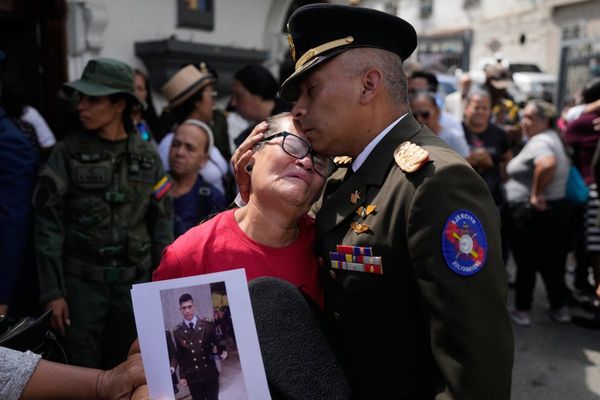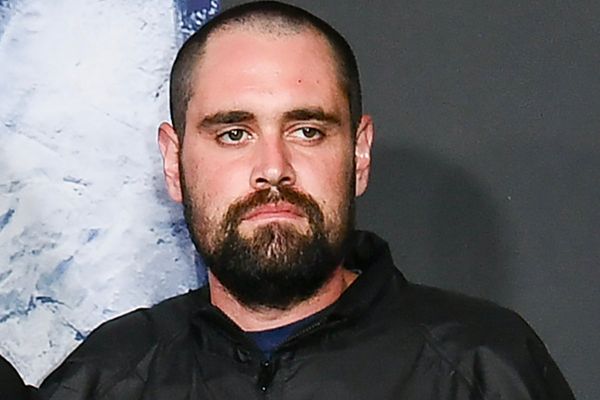Mexican and South American cocaine cartels have corrupted people working within Australia's border security regime, at virtually every air and sea port in the country, according to an underworld figure who worked with them.
Four Corners spoke to the man as part of an investigation into Australia's cocaine market which found there's more of the drug in the country now than at any other time in history.
"The cartel will always find somebody," said the former Sydney airport employee, who is a member of an outlaw motorcycle club and remains involved in the drugs trade.
The cartel has people here to corruptly facilitate the importation of tonnes of cocaine into the country, he said.
"There are immigration people, there are customs people, on the payroll.
"I guarantee they're on the payroll because some things come through the airport as a palette and they get put through, and on the ports as well.
"It's not just one person they've got, they've got a syndicate probably in every state. On every airport, every port."
The ABC is unable to verify the underworld figure's statements about the presence of corrupt workers within Australian's border security regime. However, a senior law enforcement official speaking on condition of anonymity confirmed that the presence of such cartel facilitators was a well-known fact among organised crime investigators.
The Australian Border Force (ABF) also launched Operation Jardena in late 2021 to target border security insiders secretly working with drugs traffickers.
"The Department of Home Affairs and ABF have no tolerance for corrupt or criminal conduct. We have a well-established internal investigative capability which identifies and responds to integrity threats," a spokesperson said.
The underworld figure said the cartel corrupted people through a combination of bribery and intimidation.
"When I started … the cartel wanted to meet. To scare me in a way, like, 'don't f*** with us'.
"[They say] we know everything about you … we know where your family lives, you're f***ed, you got to start bringing it in."
Aside from border officials, the cartels have other people in Australia monitoring the importation, he said.
"They got the hit men here and they got their soldiers, their foot soldiers, and they got their business guys, counting everything for them.
"There's a hundred, two hundred kilos coming in, and it's worth four times the amount [than] it's worth over there."
Australians are the biggest per capita consumers of cocaine in the world, and Australia is one of the most expensive countries in which to to buy it.
Although the underworld figure didn't name the cartel with whom he was working, the two most powerful Mexican cartels are Sinaloa and Jalisco New Generation.
He was working with them via a middleman, a well-known Australian criminal, who is now on the run overseas after being targeted by police here.
The Australian Criminal Intelligence Commission (ACIC) says it's possible Australia is going through a cocaine boom.
"It is likely that cocaine trafficking groups collectively are attempting to supply as much, or perhaps more, cocaine to Australia than has ever been the case," the ACIC's principal drugs advisor, Shane Neilson, told Four Corners.
The door
The man, who requested anonymity in order to discuss the cartels and his role in Australia's illicit drugs trade, used to work as what's known as a "door".
A door is a person or a group of people who facilitate the smuggling of drugs through Australia's national border. They often have jobs that allow them access to ports.
They are considered some of the most elusive, vulnerable and prized members of a drug syndicate, particularly in Australia, which is a tough market for cocaine importers due to its heavily protected borders.
"I was organising the coke coming through the airport, helping it get out of the airport, using my access to the airport as a way to get everything out," he said.
"We had swipe cards, so we knew which gate to go through. And what time to go through.
"Or sometimes you get one of the supervisors to drive you out with the car, which they never used to get checked. You can have a boot full of everything and you used to just drive straight out onto the main road."
He was eventually pushed out of his job at the airport, but remains a well-connected figure in the Australian underworld.
He said he sometimes brought in as much as 15 kilograms of cocaine every two to three days.
His fee would be 30 per cent of the product, which amounted to hundreds of thousands of dollars per shipment for him and his associates.
'They will make you disappear'
The man also spoke about how he corrupted other airport employees to work within his door operation.
Someone would get them drunk, give them cocaine, and explain the amount of money they could make, which was significant for someone on a low wage, he said.
"It's a handshake, that f***ing handshake, mate you just signed your life away," he said.
"Do I feel sorry for the people I've done? Yeah, I do in a way, but I also don't because … everyone has personal choice. You could have said no straight away."
The man said his relationship with the cartels was straightforward until he "cut" — diluted — a shipment of cocaine and then accused them of ripping him off with low-grade product.
He said he was told they would replace the cocaine at a meeting. When he turned up to the dark street at the assigned time, five cars pulled up.
"He walked up to me, the boss, the commander, and he goes to me, 'give me the product'.
"He goes to me, 'I'm gonna tell you something now. I never give shit. I never give anything that's shit. Remember those words'."
The cartel man agreed to replace the cocaine but said he wouldn't do it again.
"So in other words, just telling me, f*** me again and I'm going to f*** you up."
Despite his value to the cartel as a door, he said he always knew he was replaceable.
"They'll wipe you off the f***ng Earth and go somewhere else. I mean they will make you disappear, you'll just go."
Cartels operating in Australia
The director of investigations at the NSW Crime Commission — the state's most powerful and secretive law enforcement agency — confirmed that members of Latin American cartels are present in Australia.
Hany Elbatoory said he did not have specific information about their operations in Australia but that cartels do have a presence here.
"Do members of cartels from any kind of group, whether it's from Eastern Europe or South America or the Middle East … do they come to Australia? Certainly, they do," he said.
"Do we monitor them? We try our best to do so."
Over the past two decades, Mr Elbatoory said the demand for cocaine has increased greatly.
"I recall around the [2000] Olympics, the price of cocaine was between $120,000-$150,000 a kilo … today the price of cocaine is between $250,000-$300,000 a kilo," he said.
Watch Four Corners lift the lid on this shadowy underworld, speaking with the people involved throughout the cocaine supply chain on ABC iview.







